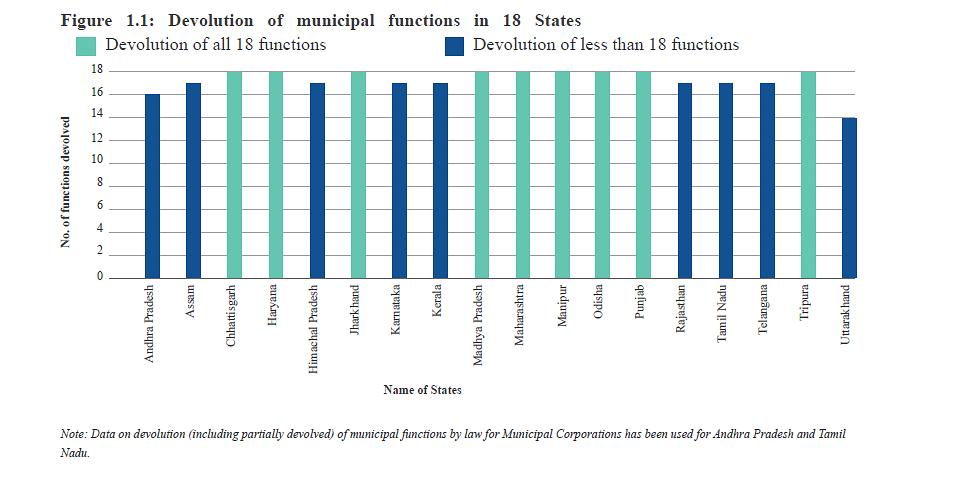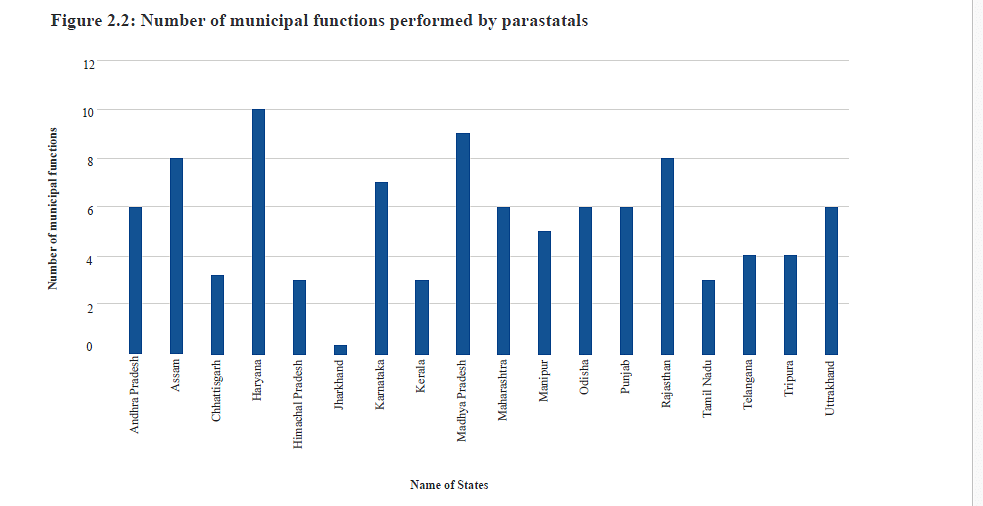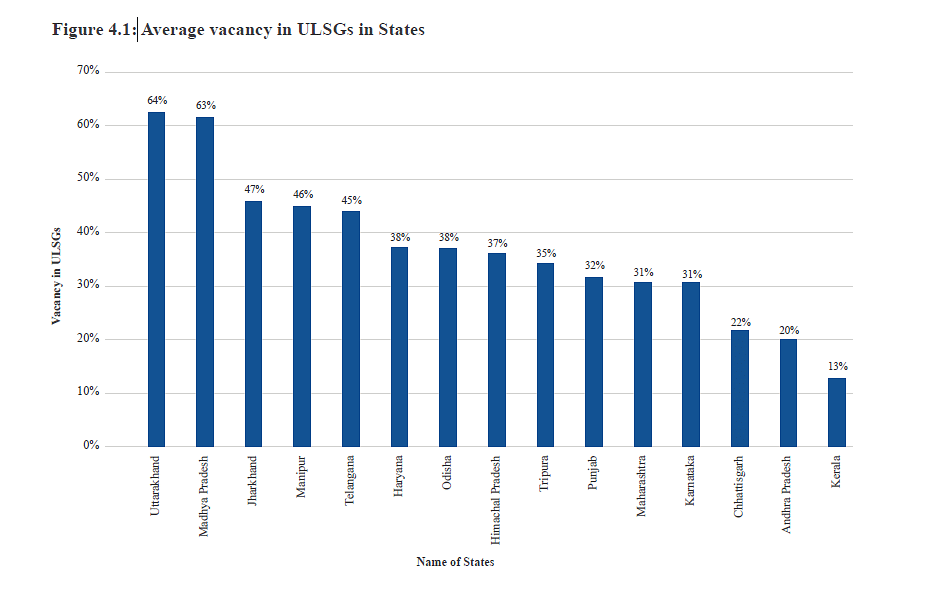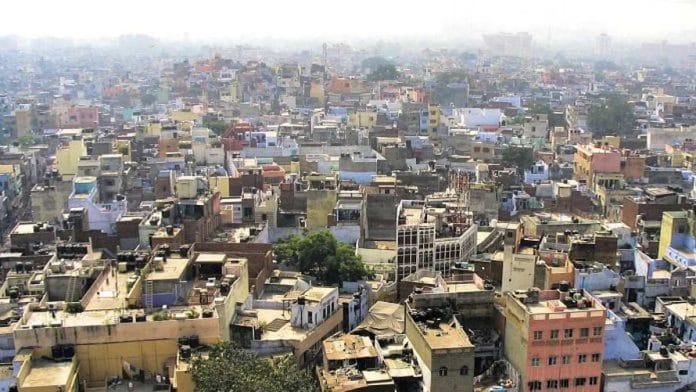New Delhi: More than 31 years after Parliament passed a constitutional amendment empowering urban local bodies (ULBs), compliance remains “weak”, with many states yet to completely devolve key functions like slum rehabilitation, fire services, and urban planning, according to a recent Comptroller and Auditor General of India (CAG) report.
The Constitution (Seventy Fourth Amendment) Act of 1992 came into force on 1 June 1993 and had a list of 18 critical functions for the state governments to transfer to ULBs.
The CAG found that while 17 of the 18 functions were devolved in 18 states, just 4 functions were “effectively devolved with complete autonomy”.
It also found that only 5 states have provision for direct election of mayor and only 6 have 50 percent reservation for women in ULBs. Further, the report flags concerns about the fiscal health of urban local bodies, as just 32 percent of the total revenue of ULBs was their own and the rest was grants from state and central government.
There was a 42 percent gap between revenue resources and expenditure of ULBs in the 18 states, said the apex government auditor.

The CAG Monday released the compendium of performance audits on implementation of the 74th Amendment. The performance audits were conducted between 2014 and 2021 across 393 urban local bodies in 18 states, namely Andhra Pradesh, Assam, Chhattisgarh, Haryana, Himachal Pradesh, Jharkhand, Karnataka, Kerala, Madhya Pradesh, Maharashtra, Manipur, Odisha, Punjab, Rajasthan, Tamil Nadu, Telangana, Tripura and Uttarakhand.
“The overall objective of the performance audits was to assess whether Urban Local Self Governments (ULSGs) have indeed been empowered in terms of funds, functions and functionaries to establish themselves as effective institutions of self-government and whether the 74th CAA has been effectively implemented in the states,” CAG said.
Srikanth Viswanathan, CEO of Bengaluru-based non-profit Janaagraha, which worked on the compendium with CAG, said it is for the first time such a comparative analysis has been done. “This is a watershed moment as it will make the subject politically relevant. It is for the first time, a comparative analysis of the audit findings has been done, giving a clear idea about how the 74th amendment has been implemented,” he said.
Also Read: Rural-urban transition, reforms in Municipal Act. How Modi govt plans to improve city governance
‘Very few powers to ULBs’
According to the 74th Amendment, states were meant to devolve 18 functions to ULBs.
The 18 states covered in the report have devolved 17 functions, but only 4—burial grounds, public amenities, prevention of cruelty to animals and regulation of slaughter houses—have been given with full autonomy.
The CAG found that only 9 states (Chhattisgarh, Haryana, Jharkhand, Madhya Pradesh, Maharashtra, Manipur, Odisha, Punjab and Tripura) have devolved all the 18 functions, while Tamil Nadu has devolved 17 functions to municipal corporations and municipal councils. Urban planning is among the least devolved functions, said the report.

“It is a major flaw that civic agencies are not involved in urban planning of the city while they are responsible for providing all essential services and maintenance of basic amenities. Municipal authorities need to have greater say in city planning and its development,” said Viswanathan.
Apart from devolution of powers, another critical issue is that of acute shortage of staff in civic bodies in these 18 states. While the population in cities is rapidly increasing, ULBs in most states don’t have sufficient manpower, the report highlighted.
“ULSGs do not have adequate staff. On average, they have 37 percent vacancies against sanctioned posts … Madhya Pradesh (61 percent), Telangana (53 percent) and Jharkhand (45 percent) have significantly greater vacancies than the national average,” the CAG said.

Timely elections audit observed that only 4 of the 15 states, namely Himachal Pradesh, Kerala, Maharashtra and Tamil Nadu have empowered state election commissions with ward delimitation while in the remaining 11, it is vested with the State Government.
9 states have five-year tenure of mayor
The CAG said that only 5 states (Chhattisgarh, Haryana, Jharkhand, Tamil Nadu and Uttarakhand) have the provision for direct election of mayors.
Despite the Centre recommending that the mayor’s term should be coterminous with the ULB in its Model Municipal Law in 2003, just 9 states have this provision in place.
“A mayoral term co-terminus with that of the council is important, as otherwise, there might not be enough time for the mayor to carry out effective reforms in the city. A change in priorities of the ULSGs as a consequence of a change in leadership is also a possibility. Further, most often, mayors with a tenure of less than five years, may not get to see the projects they announced reach their conclusion,” the CAG report said.
It also said that in 5 states (Chhattisgarh, Haryana, Jharkhand, Tamil Nadu and Uttarakhand) the mayors are directly elected. “This highlights that about 61 million out of the 241 million urban citizens of the 18 states in India can directly elect their mayor.”
(Edited by Amrtansh Arora)






